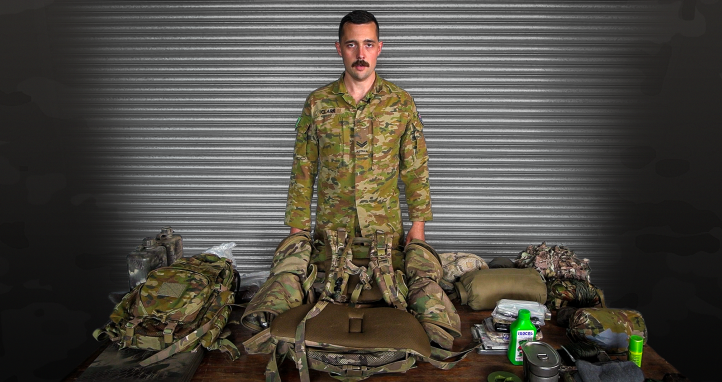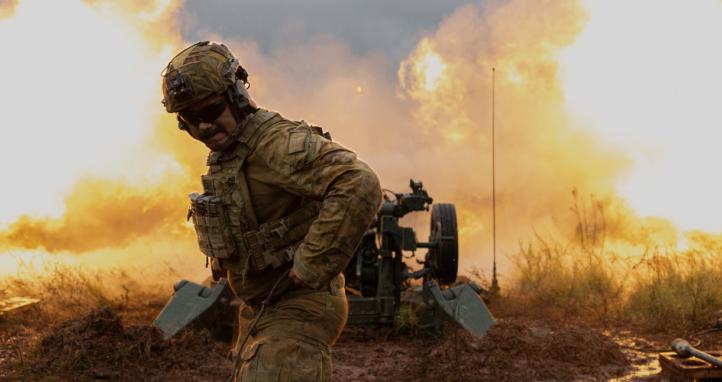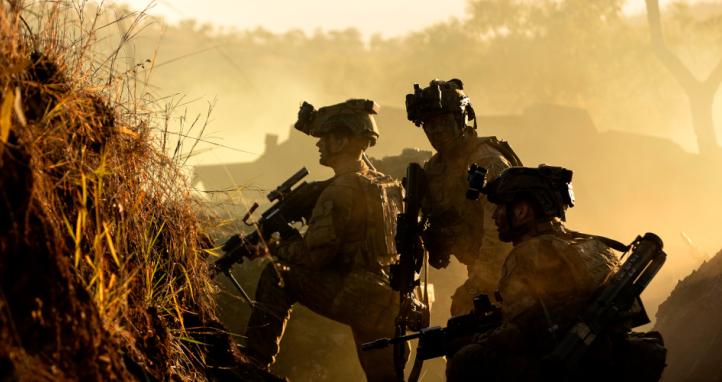The Army does a poor job teaching its soldiers about mental health and especially mental toughness. Being in the Infantry, we must be ‘physically and mentally tough’[1]. We know what physical toughness is, but what is mental toughness? What do we mean by mental toughness and how does one train to become mentally tough? These are the questions I want to explore from a soldier’s point of view; from someone who has gone through the training and has seen how inadequate it is. Hopefully, we can begin to develop a better way of teaching mental toughness to our soldiers.
What is mental toughness?
Firstly, let us start with some definitions. Mental toughness describes the capacity of an individual to deal effectively with stressors, pressures and challenges, and perform to the best of their ability, irrespective of the circumstances in which they find themselves[2]. Army doctrine defines resilience as ‘the ability to adjust to and/or recover from difficult experiences.’ [3]
Yet Army is almost silent in the discussion on mental toughness and resilience. The only part of Army doctrine that mentions mental toughness and resilience comes from the Land Warfare Doctrine 0-2-1 Military Psychology for Operations where it says:
'Resilience is the ability to adjust to and/or recover from difficult experiences. To the resilient person, problems are regarded as challenges to be overcome and opportunities to grow or learn. Fortunately, strategies to teach resilience are well established and involve the promotion of behaviours, thoughts and actions that can be learned and developed by almost anyone. Awareness of the stress response, having a strong sense of self-efficacy (confidence in one's competence), and establishing cohesive support networks are examples of basic resilience-promoting strategies.'[4]
This document does not outline practical tips for how one can improve one’s resilience or mental toughness but instead refers to ‘strategies… that are well established’. While a generalised view of strategies may seem to offer practical tips, it is woefully inadequate for the real-life training of soldiers in this area. What practical application can be given to ‘awareness of the stress response’ for the development of mental toughness in us soldiers? However, we can see where the author may be coming from when they say, ‘promotion of behaviours, thoughts and actions.’ This passage seems to be referring to building those mental and physical habits which will dispose someone to becoming more resilient. However, why is it essential to develop these habits? We see that the Army regularly teaches soldiers through the development of good habits and getting rid of bad habits. From our first day in the Army at Kapooka, Recruit instructors are focused on instilling good habits in us and training out bad ones. When we join the Army, we often have many bad habits we have developed from civilian life, and basic training is created to remove these bad habits and to promote good habits like self-discipline, obedience, teamwork, and many others. Likewise, when we leave basic training, we are also taught the value of habituation during courses like combat shooting, where through repeating the same action over and over again we can make actions instinctual.
Habits and Virtues
Good habits are called virtues[5], and as Aristotle points out, 'Virtue is of two kinds, intellectual and moral. The intellectual is generated and fostered for the most part by teaching, and so requires time and experience. Moral virtue, however, is derived from customary action (mos). Hence by a slight variation of the original term, we have this name ‘moral.'[6] Moreover, later, he adds, 'actions control the formation of habits'[7]. From this we know that actions form habits and habits can either be related to intellect or action. Virtues can also have sub-virtues which are specific actions which relate to broader actions. So, when the ADF doctrine refers to actions[8], we can see they are referring to moral virtues, and when they refer to thoughts[9], they are referring to intellectual habits. However, to which moral and intellectual virtues are they referring?
To answer this question, we need to have a better understanding of the ontology of the structure of the mind and how it works to see how mental toughness and resilience refer to habits. From a Thomistic perspective, the mind has two major parts known as the passive intellect and the possible intellect. The Passive intellect is made up of the four interior senses: imagination, memory, the cogitative power and the common sense power. We all know what imagination and memory are. The Cogitative Power refers to our immediate knowledge of whether something is concretely good or bad in a particular and sensible[10], and not in an abstract way. It does this through a sort of discursive action through sensing and making associations[11]. The Common Sense power is a power that combines all the exterior senses (taste, sight, touch, smell, hearing) into one common input and is a sort of medium between the exterior senses and the interior senses[12]. The Possible intellect is made up of three functions: simple Apprehension, Judgement, and Ratiocination. Simple Apprehension is how we understand what a thing essentially is (e.g. what makes a dog a dog, and what makes it distinct from anything else)[13]. Judgement is our ability to affirm or negate two apprehended terms. To combine two concepts (composition) or to deny two concepts being together (division)[14]. Finally, we have ratiocination, which is our ability to reason. In this way, we combine two judgements in a syllogistic way to form a conclusion[15]. Aside from the Possible and passive intellect we also have the Will (the ability for the possible intellect to subordinate the passive intellect according to an apparent good)[16]. We also have Emotions. Emotions affect both the passive intellect (directly) and the possible intellect (indirectly) as well as the Will (indirectly).
So, how does this help us in understanding mental toughness? Well, in our initial definition of mental toughness, we identified that the individual had to deal effectively with stressors, pressures and challenges as well as the individual circumstances one might find themselves in. Ultimately, these relate to the decision-making process, and the decision-making process lies in the will. By understanding how everything comes together in the mind and how that affects the will, we will be able to understand which habits are needed to develop mental toughness and resilience. So, let us look a bit closer at the will and how it functions.
The Importance of Will
The will, according to Aristotle, seeks after the apparent good[17] which means that after being presented with the apparent rational and emotional goods through the possible intellect it has to decide which apparent good it wishes to seek and then directs the passive intellect towards that good. Now a good does not have to be something positive. Something can also be an apparent good if it is trying to negate some evil[18], flee from some future evil, and others[19]. The rational goods are objectively better than the emotional goods because the rational goods are lead by reason (the possible intellect) whereas the emotional goods are lead by the imagination through the cogitative power (the passive intellect). In this regard, emotional goods are good through sensible associations [20], whereas rational goods are good through syllogistic reasoning through abstract ideas[21]. Rational goods are more in line with the truth than emotional goods since our reason is our ability to understand what is true objectively. Emotions are driven by all sorts of complex desires and are not necessarily in conformity with the truth. Therefore, rational goods are higher goods than emotional goods.
However, a person may be intellectually habituated to choose emotional goods over rational goods to satisfy their emotions. For example, a man may be craving junk food (an emotional good), but he knows that he is on a diet and needs to be disciplined to maintain his health (rational good). If this man acted towards fulfilling this emotional good at the expense of some rational good, then his will may move him to act upon this lower good because of some bad habit (Vice). However, the man may also reject the junk food for the higher good of his health, and in this case, he has acted virtuously. The more this man chooses one way over another is how this man begins to habituate a particular behaviour and thus creates a virtue or a vice depending on whether this habit is good or bad. Emotional goods do not always conflict with rational goods. The same man may have a craving towards healthy food, and in this case the emotional good (healthy food) conforms with the rational good (maintaining health).
What does this mean for developing mental toughness?
Now that we have explained the will in greater detail let us turn back to which intellectual and moral virtues deal with mental toughness and resilience. It has been pointed out in both of the definitions of mental toughness and resilience that the individual would have to deal effectively with stressors, pressures and challenges as well as the individual circumstances one might find themselves in. These indicate a form of arduousness to achieve some end or good, and this principally lies with the virtue of fortitude. Fortitude is the moral virtue by which one engages the arduous good.[22] Aquinas elaborates:
'Now the human will is hindered in two ways from following the rectitude of reason. First, through being drawn by some object of pleasure to something other than what the rectitude of reason requires; and this obstacle is removed by the virtue of temperance. Secondly, through the will being disinclined to follow that which is in accordance with reason, on account of some difficulty that presents itself. In order to remove this obstacle fortitude of the mind is requisite, whereby to resist the aforesaid difficulty even as a man, by fortitude of body, overcomes and removes bodily obstacles.'[23]
We see that fortitude is about overcoming what is difficult to achieve the rational good. In other words, to form the habit of fortitude means we must endure difficulties. Is this the only virtue one must develop to become mentally tough? We see from our Army doctrine on resilience that it gives three further points of advice. ‘Awareness of the stress response, having a strong sense of self-efficacy (confidence in one's competence), and establishing cohesive support networks are examples of basic resilience-promoting strategies.’[24] The first point centres on awareness of the stress response or how our emotions can affect our ability to choose rational goods. This awareness comes through education and developing knowledge [25] in the area of psychology. The second point is about confidence in one’s competence. This confidence should not imply that one has a higher opinion of oneself than what they indeed are, for this would be giving someone a false self-estimation and would be damaging to them when their true self does not live up to their over-inflated ego. Likewise, one should not underestimate themselves and their ability, and this is what I believe this second point is referring to. In this case, development in the moral virtue of humility [26] will be beneficial to building resilience. Lastly, establishing cohesive support networks is just building the moral virtue of friendship [27].
Practical tips for building mental toughness
So, what can be done practically to help build mental toughness in our units? Regarding developing fortitude, we have to teach our emotions to remain subordinate to our reason. I want to delineate a progression of different exercises one can do to build the virtue of fortitude.
Start by setting goals and achieving them. For example, go for long runs and set a goal (5km, 10km, 15km) and do not quit until the goal is completed. Do not try to lower the goal or find some excuse to get out of it. Doing this will build up the habit of perseverance[28] which is a sub-virtue of fortitude.
Next, start giving up some form of pleasure for a month. This pleasure could be smoking, drinking, watching TV, eating out, sleeping in, or even depriving catharsis. There are a plethora of things you derive pleasure from that you could give up for a month. Doing this will build the virtue of temperance, [29] which is also related to the will making emotion subordinate to reason.
Next, increase pressure or discomfort by exercising in the rain, listening to some uncomfortable noise (like white noise, bad music or crying babies for example) for long periods or introduce pressure by shortening the time you have to do specific tasks with added punishments if you fail. These exercises will build the virtues of patience and mortification, [30] which are sub-virtues of fortitude.
Regarding bringing about more education about psychology, this can be done through training section commanders in basic psychology and Cognitive Behavioural Therapy, possibly during their Subject 2 Corporal course. This idea would help stress the importance of welfare at the lower levels by giving section commanders the ability to identify mental health issues amongst their soldiers and address it as soon as it appears. Unfortunately, soldiers do not bring up mental health issues until it creates a significant impact on their ability to function normally in their workplace. At this point the solider will go see a Psychologist or a Chaplain to address the issue well after the point it started and where it could have been addressed to mitigate this downward spiral. If section commanders could address these issues as soon as they were noticed and provide the help and support the soldiers needed, there would be no need for the soldier’s mental health to plummet to such a low level. This idea would also address the point of building cohesive support networks at the section level where soldiers could feel like they could trust their commanders to look after their welfare. In my personal experience, I found that the soldiers I knew who had mental health issues told me very clearly that their conditions were either exacerbated or alleviated depending on the support they got from their chain of command.
Lastly, regarding building the virtue of humility, this can be done through detailed and regular Performance Appraisal Reports (PAR). By having a superior recognise one’s talents and address points where one can improve, one can have a greater grasp of the truth of their capability and create a truthful self-estimation. Personally, I have been in one platoon which gave a PAR twice a year, and another which gave them each month. I found that I had a much better self-estimation of where I was doing well, and where I needed to improve, in the platoon that gave more regular PARs.
Conclusion
In conclusion, mental toughness is dependent on our habits, both in mindset and in action. By understanding our actions through the rationale of developing good and bad habits we can start to gain a better grasp of mental toughness instead of throwing it around as a buzzword. A soldier’s mental welfare is just as important as their physical welfare, if not more so. Since all actions proceed from rational thought, if the mind is healthy, then one’s performance will reflect it. However, if the mind is weak and ill, then the performance will likewise be weak and poor. It is time the Army started to pay more attention to the mental welfare of soldiers and to develop strategies to build mental toughness so that soldiers can perform to the best of their ability.





I have Mokopuna (grandchildren and great grandchildren) here in NZ.
Nga Mihi, Joanna